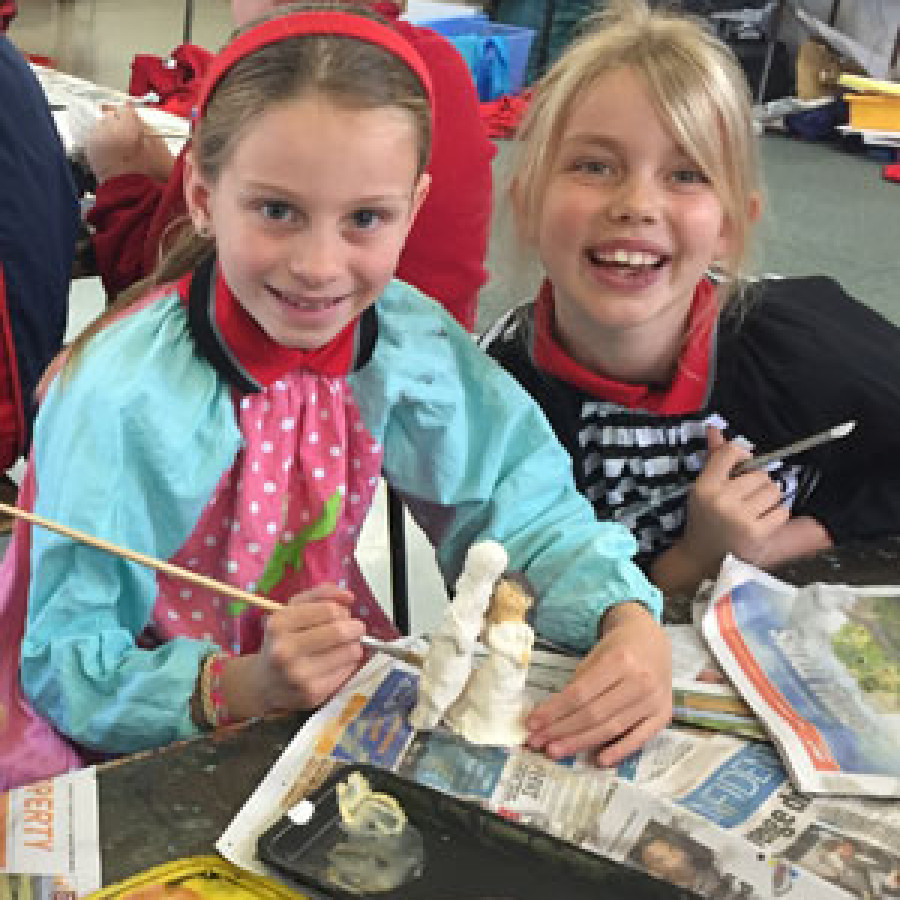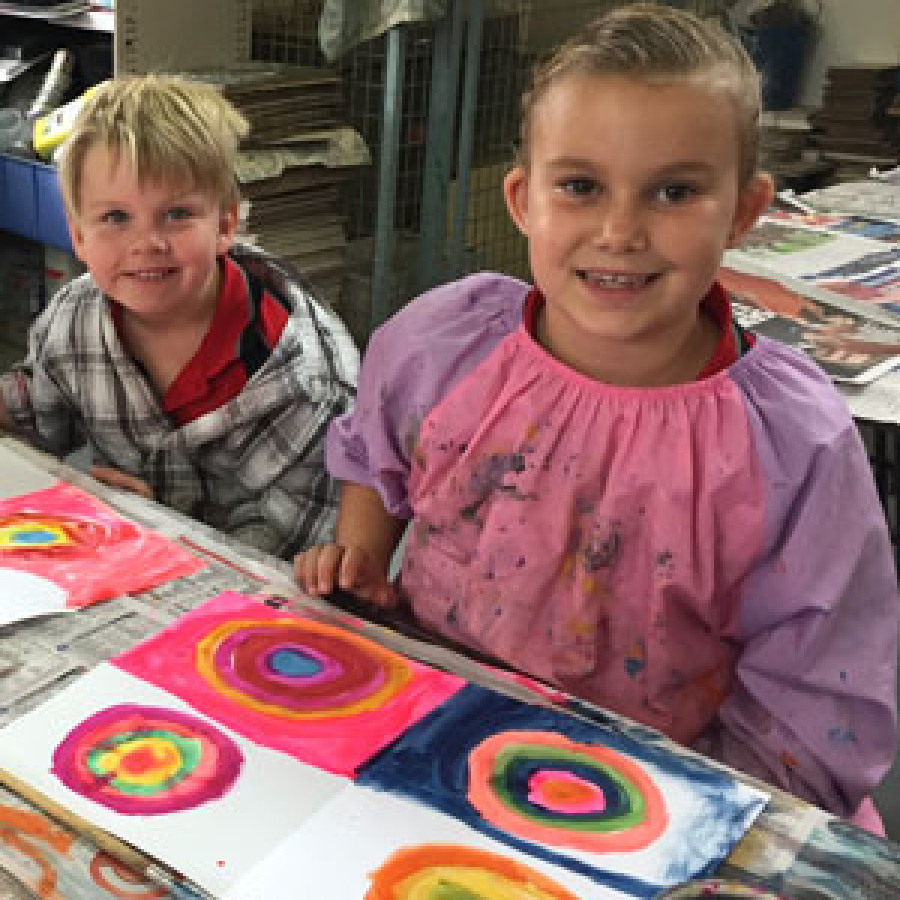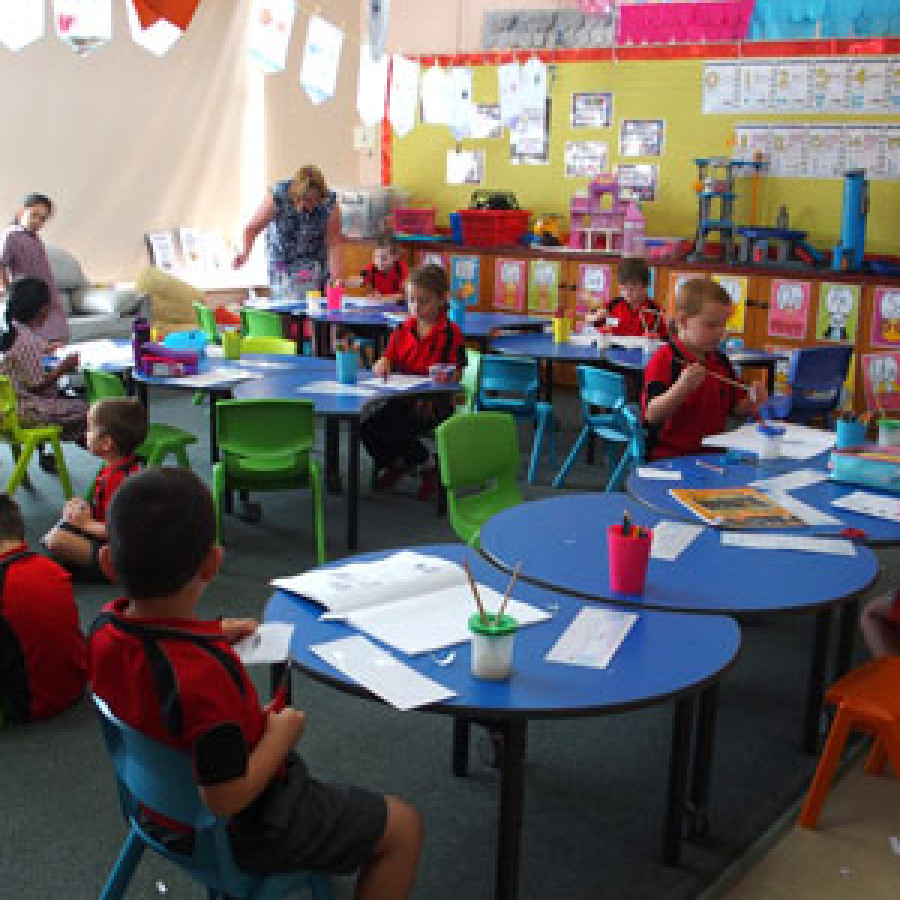Science / Stem, Arts & Languages
All year levels have access to Science/ STEM, Visual Arts, Performing Arts and Language programs taught by specialist teachers.
Science/STEM
Science/STEM is a key learning area here at Sale Primary School and is taught by a ‘Science Specialist’. We are all very excited as the school now has a dedicated Science/STEM room and all students participate in a 60 minute Science/ STEM lesson each week.
Sale Primary School implements ‘Primary Connections’ as the main teaching and learning program in years F-6. This program develops the Scientific inquiry skills of students to implement the content topics of:
- Biological Sciences
- Chemical Sciences
- Earth and Space Sciences
- Physical Sciences
The curriculum supports students to develop the scientific knowledge, understanding and skills to make informed decisions about local, national and global issues and to participate, if they wish, in science-related careers.
Visual Arts
All students participate in our Visual Arts program provided by a specialist teacher, based on the Victorian Curriculum F-10.
Foundation classes attend a 60-minute Art lesson all year, whilst students in Grades 1-6 attend lessons for two terms. During Art lessons, students' are introduced to various Art mediums and techniques.
Most Visual Art lessons include discussion, demonstration, making and creating and conclude with reflection and feedback. The students are encouraged to explore the elements and principles of Art through a variety of media and experiences including drawing, painting, threads and textiles, construction, collage, printmaking, clay and various other mediums and techniques.
Visual Art at Sale Primary aims to develop a student's creative problem solving abilities and encourage independent thinking, providing them with the skills to express themselves and think creatively. Every student is encouraged to create Artworks whilst developing their aesthetic education - understanding how to view Art.
Students are expected to wear a suitable (preferably waterproof) Art smock or old shirt, to protect clothing when participating in Art lessons.
Performing Arts
Music
At Sale Primary School, we uphold a strong tradition of musical excellence. All classes participate in a Music program provided by a specialist teacher. Grade 1-6 students are provided with specialist weekly Music classes, for two terms using a variety of resources, equipment and instruments.
Foundation classes attend Music lessons throughout the year. We have a number of performing ensembles including Choirs, Rock Bands and Taiko (traditional Japanese drumming).
Middle and senior students are involved in these ensembles, while Junior students enjoy many Music activities during specialist Music classes as well as a Foundation and Junior choir.
The rock bands perform popular hits and original songs they have created themselves. This is a social opportunity to learn collaboration skills and instrumental music skills.
Taiko
Taiko drumming is spectacular! It involves students learning technical drumming skills, movement, chanting and dance to product awe inspiring performances steeped in the Japanese tradition. In a feast for the eyes and the ears, Taiko includes disciplined movements, striking costumes and constrasting musical dynamics.
Performances
Our ensembles and bands are involved in performances throughout the year. This may include Eisteddfods, assembly performances and out of school performances. As a reward for hard work and commitment, an exciting one-day band tour takes place during term four, where students will be given the opportunity to display their talents to the public.
ICT
In 2024 the school introduced ICT as a specialist subject. The students learn age appropriate skills on how to not only navigate a laptop computer and design different curriculm related digital documents, but also the importance of cybersafety.
Language - Auslan
Auslan lessons are taught for 45 minutes each week. Auslan aims to develop the knowledge, understanding and skills to enable students to:
- communicate in Auslan
- understand language, culture and learning and their relationship, and thereby develop an intercultural capability in communication
- understand themselves as communicators
- develop a knowledge and an understanding of the diversity of Deaf experience and the nature of identity.
These aims are interrelated and provide the basis for two organising strands for learning Auslan: Communicating and Understanding.



